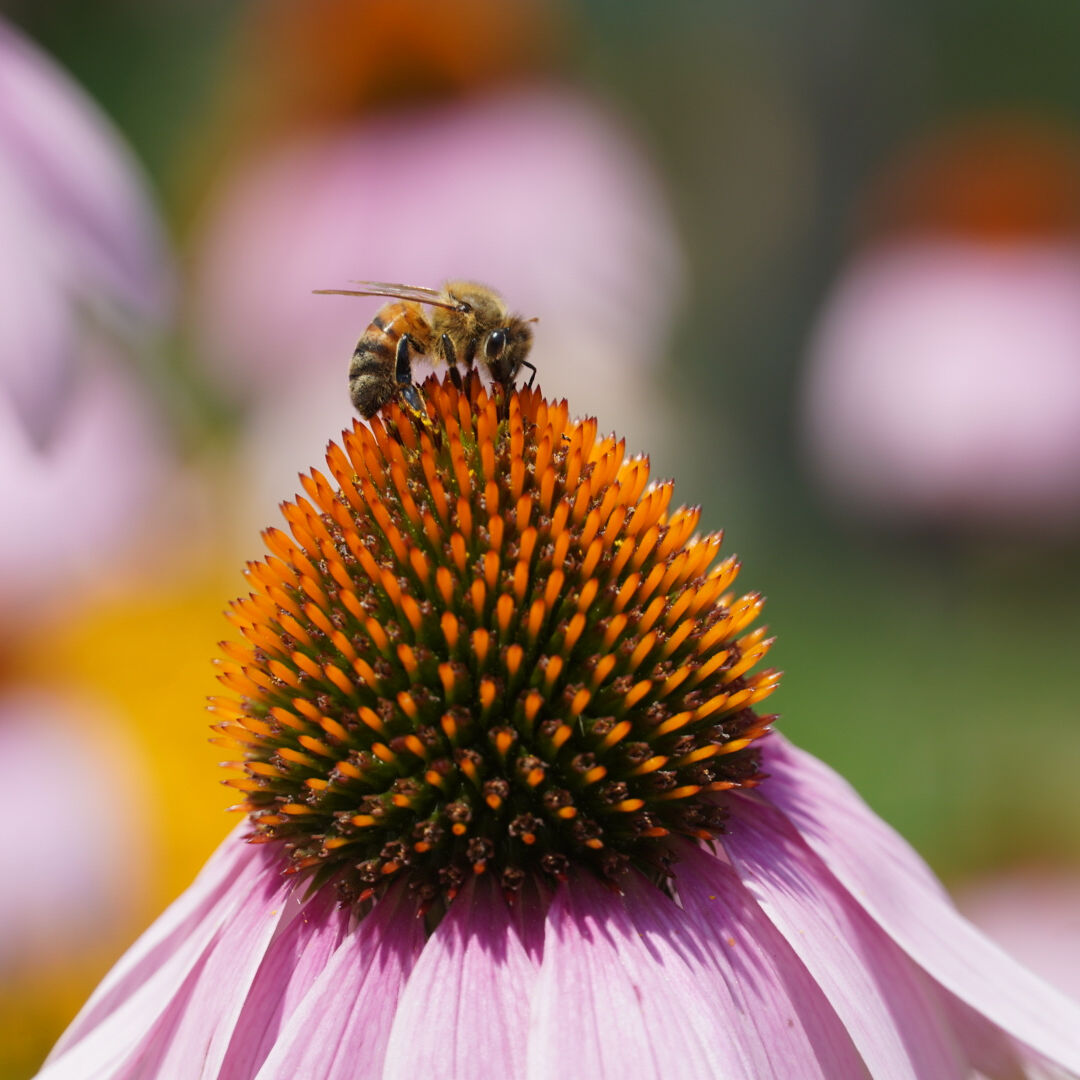
press release
Pollinator Garden Comes To Sister Cities Park
Contact:
JoAnn Loviglio
T 215.440.5546
jloviglio@centercityphila.org
FOR IMMEDIATE RELEASE
4,000 native flowering plants and grasses create an urban haven for birds and insects
PHILADELPHIA (July 19, 2023) – A buzzworthy transformation is taking shape at Sister Cities Park that will remake a 6,000-square-foot area into a haven for birds, butterflies, bees and other insects, thanks to 4,000 native plants, flowers and grasses.
Throughout the spring, Center City District (CCD) landscape team members, horticulture partners and contractors planned and planted a native pollinator garden at the southeastern end of the park where North 18th Street and the Benjamin Franklin Parkway meet.
Sightline-blocking viburnum hedges were cleared from the space in the spring, making room for the new plantings to be installed in phases throughout the month of June as each of the 14 varieties became available and as weather permitted.
Among the 4,000 new pollinator-friendly native flowering plants and grasses are black-eyed susan, common milkweed, bluestem, prairie dropseed, ironweed, joe-pye weed, goldenrod, blue flag iris and muhly grass. (See next page for location information.) The plantings are small but – as hardy native species – are expected to fill in and naturalize quickly. All have been chosen for their ability to support migratory and native birds and insects as a source of food and shelter.
“The re-envisioning of this spot in Sister Cities Park is both beautiful and functional,” said Prema Katari Gupta, CCD Vice President of Parks and Public Realm. “It will improve sightlines and visibility in the park, provide a joyous and colorful new experience for visitors, and create an eco-friendly benefit as what we believe will be Center City’s biggest pollinator garden.”
In 2021, a small test plot with native pollinator plants was established at Sister Cities in partnership with the Land Health Institute and Philadelphia-based Moonflower Garden Design. This year, that plot is large, colorful and full – serving as an excellent predictor of what the new plantings will look like in a year or two.
“Early in the spring of 2022, we noticed that most of the plants were not only surviving — they were thriving,” said Lisa Fernandez, founder and lead designer of Moonflower Garden Design. “During the last few months, we planned and designed a way to expand this small test plot into a full pollination garden at Sister Cities Park. We are so excited to see it grow, and most of all to see and hear all of the pollinators buzzing, flying and flitting around their new habitat.”
The U.S. Department of Agriculture notes that native bees, beetles, moths and butterflies, birds, bats and other animals are critical to our food supply because they pollinate many crops like apples and peaches, blueberries and strawberries, potatoes, almonds, coffee and chocolate. However, habitat loss and environmental contaminants are contributing to the serious decline of many species of pollinators, from bats and honeybees to monarch butterflies. Experts encourage everyone to plant more native flowering species.
In The News
- July 19, 2023 | Center City's largest pollinator garden to bloom in Sister Cities Park, Philly Voice
- July 19, 2023 | Center City welcomes its largest haven for butterflies, bees, birds. Find out where, NBC10
- July 19, 2023 | Philly's Sister Cities Park new haven for pollinators, CBS3